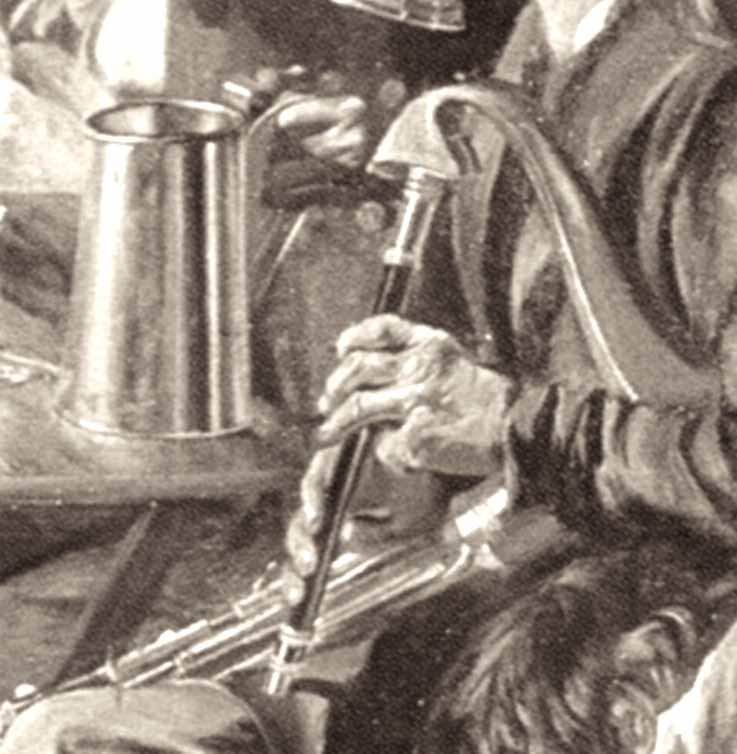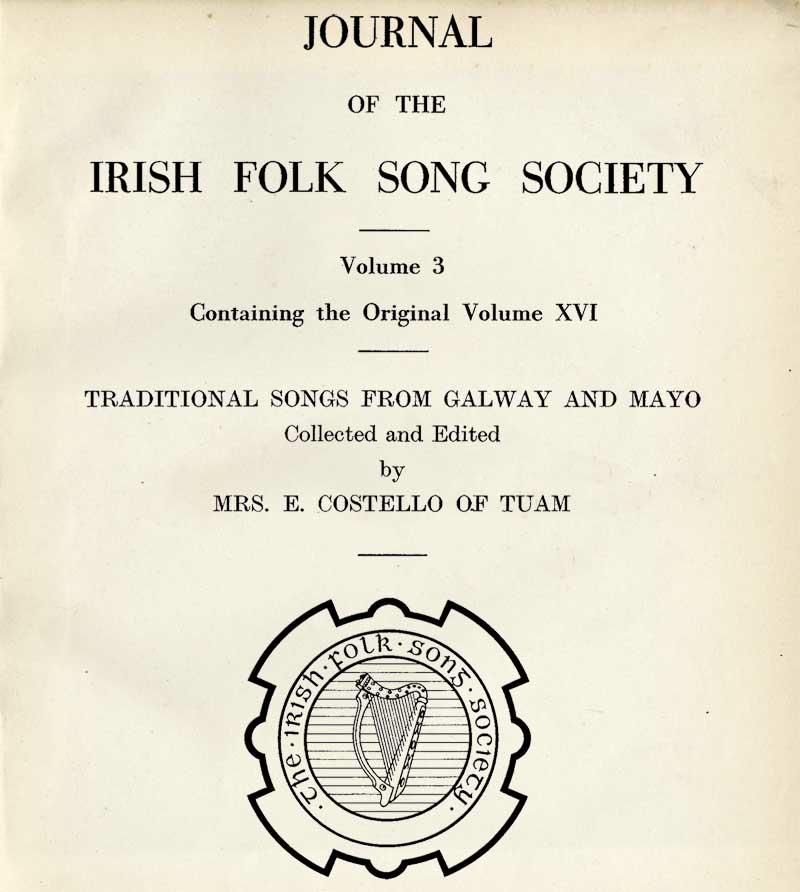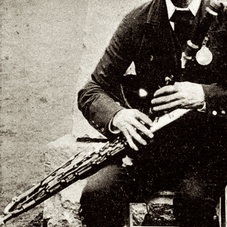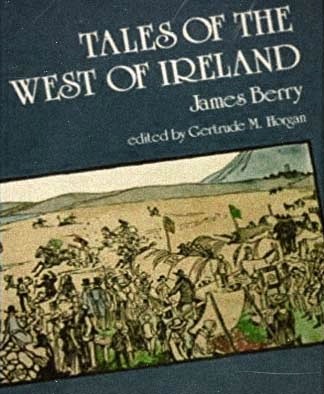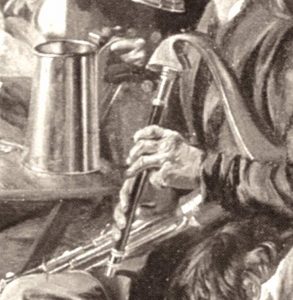
The following was found in “Miscellanea” from Folklore of Ireland Society’s Béaloideas 8, no. 1 (1938): 114 (n.b.footnotes from original article).
Reference suggesting different authorship of the tune may be found here.
![]()
HOW THE TUNE “THE LARK IN THE MORNING” WAS COMPOSED.1
When Lord Tyrawley lived at Castle Lackan, well over 100 years ago, he once had a discussion with a titled friend as to the merits of different pipers known to them. As a result they made a wager, each backing his own home piper to be better than the other man’s.
Some say the strange piper was brought to Castle Lackan by his backer, and a contest was held there one night; others say it took place in England.
Each piper played a tune in turn, and all night the competition went on. Drawing towards morning honours were even, but Piper Healy of Lackan found himself practically at the end of his resources, with the stranger still unbeaten.
Piper Healy, who was blind, whispered to his son that he was ‘done for’, but to gain a little time he went outside for an interval.
Outside in the early dawn, he sat down to rack his memory for even one last tune to outplay the stranger, who also was very nearly at the end of his tether. Suddenly Piper Healy became conscious of the exquisite notes of a skylark, singing in the clear morning air. The old man listened with his well-trained ear for a time, then with renewed hope he returned to the contest and began to play a sweet and lively tune 2. The stranger was struck with surprise and consternation, and had to admit he was beaten. He did not know the tune and could not play it.
When asked to name the tune, Piper Healy proudly called it: ‘The Lark in the Morning’.
This piper composed a píobaireacht which he entitled ‘Lord Tyrawley, Welcome Home to Lackan’. He, like many another musician, found piping to be dry work. Being bound under a pledge not to take strong drink either inside or outside a house, he resorted to the expedient of pouring the liquor on a piece of bread and eating it while he stood exactly under the lintel of the door. He thus fulfilled the letter, if not the spirit, of his pledge!
Nial McCormick,
Carrowmore, Leacan. 1937.
- This anecdote is based on the local tradition of Leacan, Co. Mayo.
- Mr. Henry Morris has forwarded me the following note: An Irish poet named Tracey in the Greencastle district of Co. Tyrone used to compose new airs for the songs he made. Near his house was a mountain stream, and by listening to the varying sounds of this stream, whether in a rushing flood or in a purling brook in dry weather, he used to get melodic suggestions on which he based the airs for his songs.
